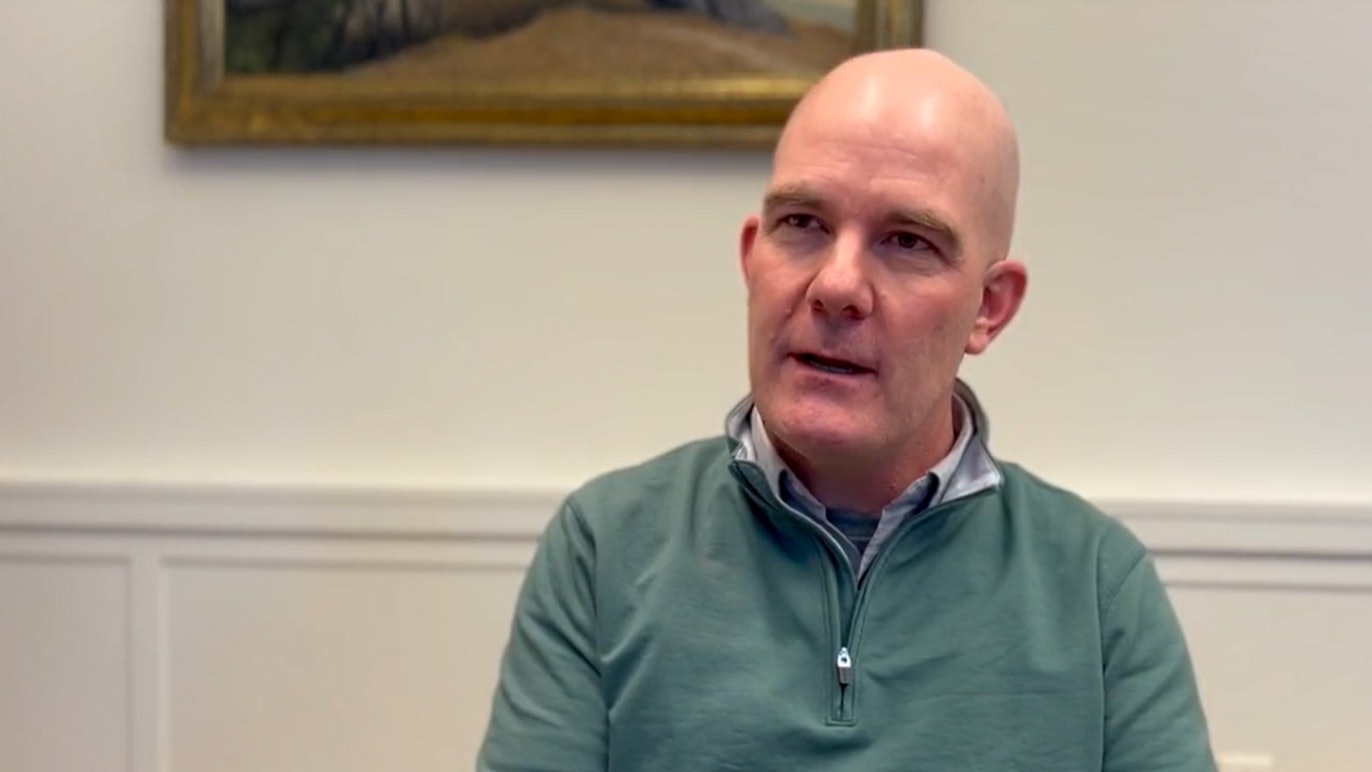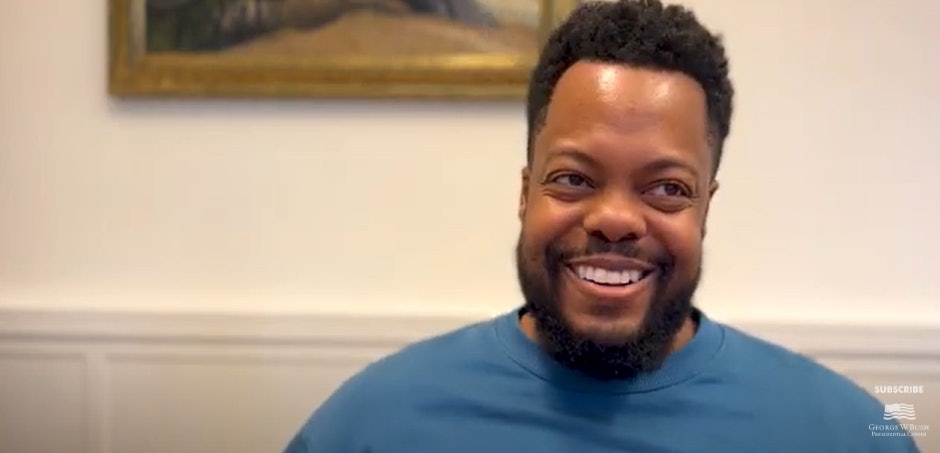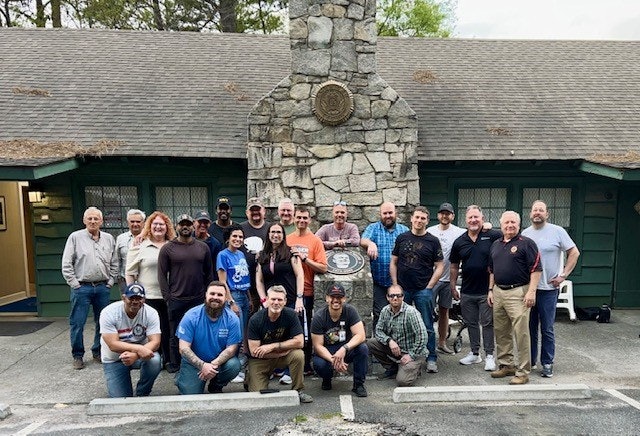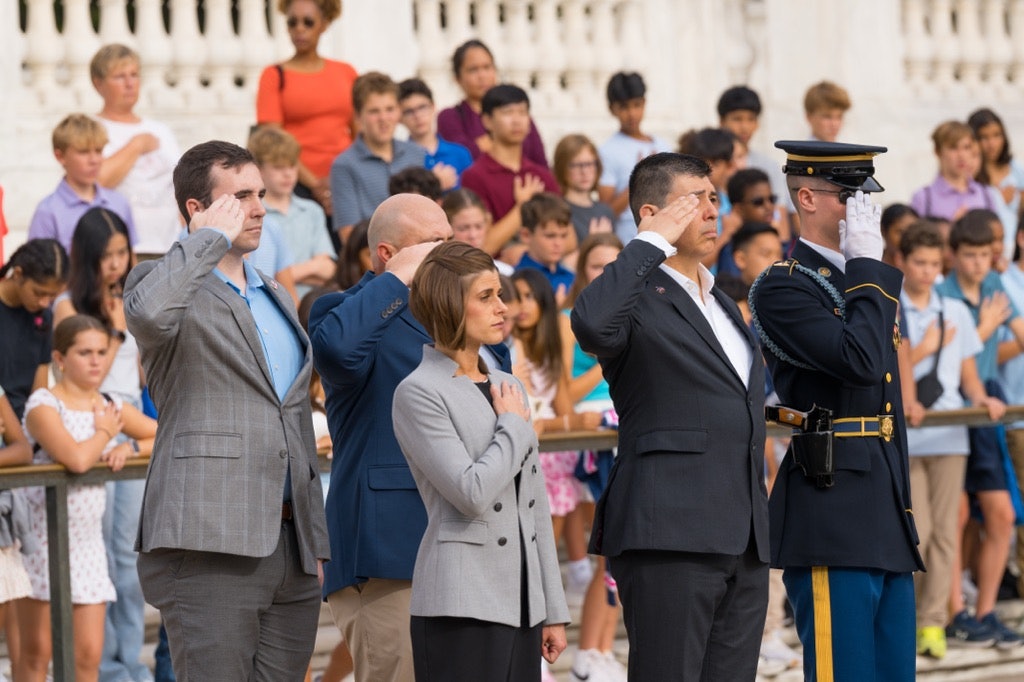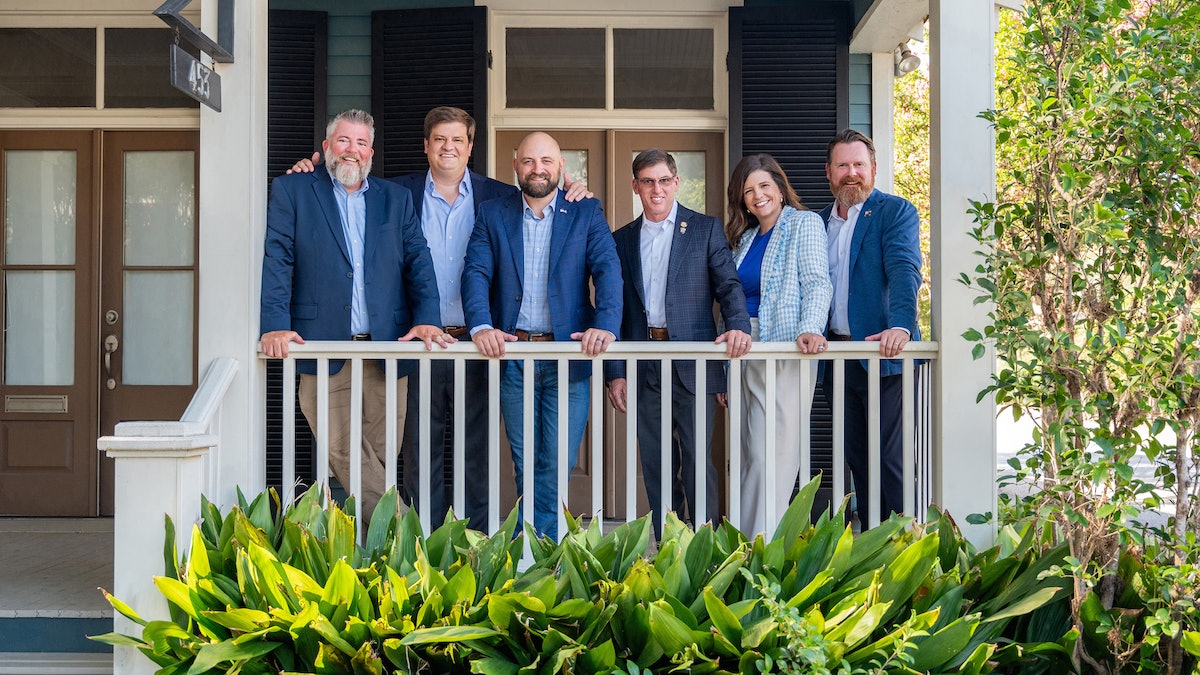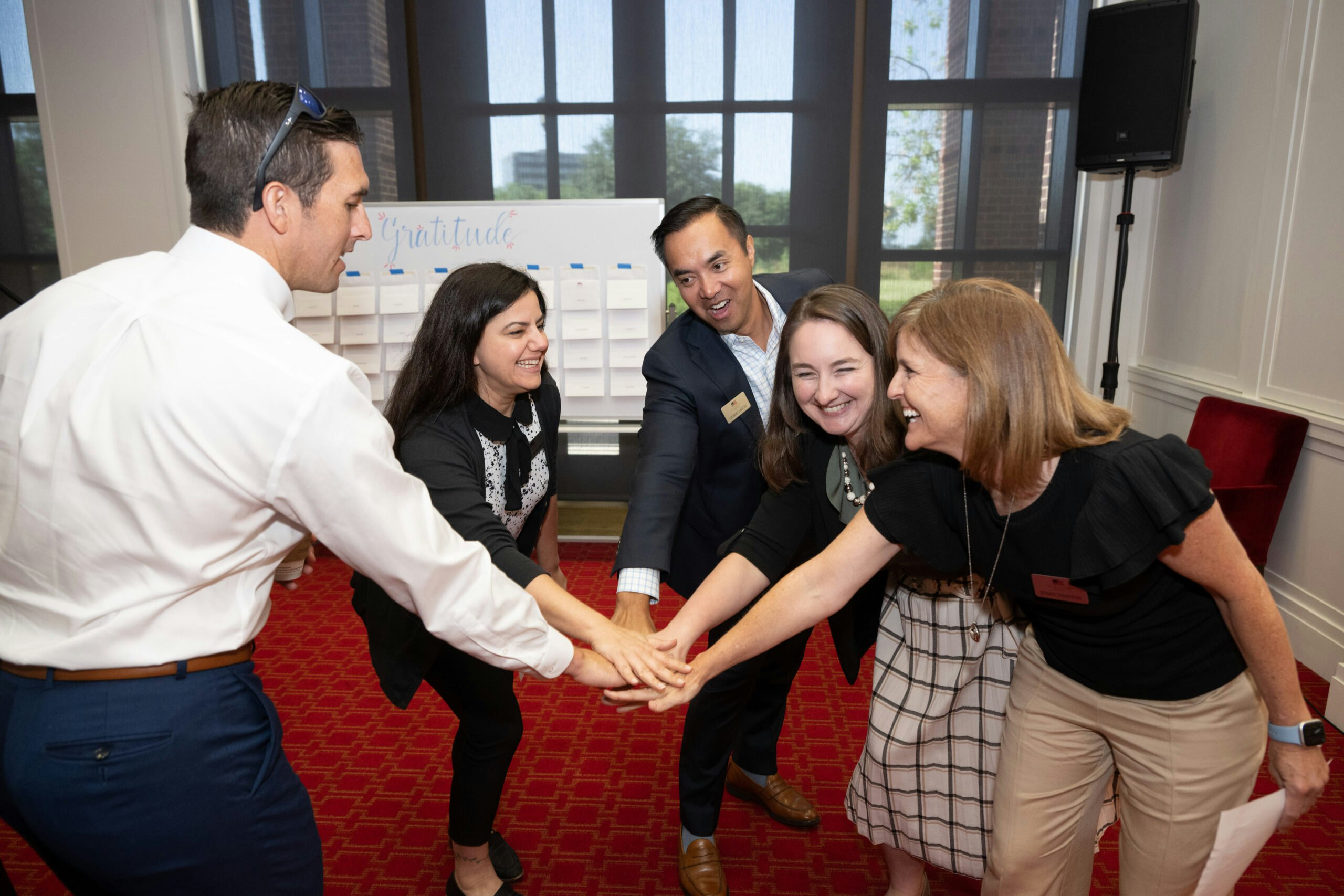Yesterday, the George W. Bush Presidential Center wrapped its 5th annual Warrior Open, a competitive 36-hole golf tournament for United States...
Yesterday, the George W. Bush Presidential Center wrapped its 5th annual Warrior Open, a competitive 36-hole golf tournament for United States military personnel seriously wounded or injured since 9/11. The tournament is a part of the Bush Institute’s Military Service Initiative which honors the service, sacrifice, and resilience of our post-9/11 veterans and military families.
At the Bush Institute, we’re focused on developing leaders to take on difficult challenges; fostering policy that helps improve the quality of life for people here at home and around the world; and taking action to save lives. With this in mind, we’ve asked our Warriors about their service to our country, their experience transitioning back to civilian life and what leadership means to them. Today we’re spotlighting past participants, Captain Chris Cordova and Corporal Dave Smith. To learn more about our Military Service Initiative or our 2015 team of Warriors, please visit the Military Service Institute website.
Captain Chris Cordova
Can you tell us a bit about your career in the military?
I am currently serving as an active duty Army Major with 19 years of service. My career began as an enlisted medic, progressed to the rank of Sergeant First Class, and ultimately led to being commissioned as an officer. After becoming an Army Physician Assistant, I deployed to Iraq in 2007 and Afghanistan from 2009-2010. During the deployments, I was privileged to provide medical care on the front lines of combat. In Afghanistan, my unit of 53 soldiers was assaulted by approximately 400 enemy fighters in one of the largest battles of Operation Enduring Freedom in October 2009. When I returned from Afghanistan, I was stationed at West Point, New York, where I provided orthopedic care to Cadets. While there, I was able to participate in numerous leadership development sessions at the United States Military Academy. Currently, I am stationed at William Beaumont Army Medical Center and participating in the Orthopedic Physician Assistant Fellowship.
What motivated you to serve our nation?
Honestly, my enlistment in the Army in 1996 was motivated by a lack of opportunities in my hometown. My desire to serve our nation and my fellow Soldiers was shaped by my first assignment as a platoon medic. The camaraderie, brotherhood, and service to a mission “greater than myself” compelled me to stay in the military and seek positions with a greater responsibility and impact on the medical treatment of combat Soldiers. This continues to motivate me today.
What advice would you give to those who are just beginning to or struggling with their transition?
Find a productive structure in your everyday life. Look for assistance with the numerous veterans’ advocacy organizations. DO NOT NEGLECT YOUR PHYSICAL FITNESS! This leads to a decline in your mental and physical health.
Corporal Dave Smith
Can you tell us a bit about your career in the military?
I joined the Marine Corps after high school and enlisted as a rifleman. I was sent to Alpha Company “Raiders” of the 1st Battalion, 4th Marines. When we arrived in Iraq, everything was really peaceful and quiet. We built great relationships with the Iraqi forces we were training and learned a lot about the history and culture of Iraq. My team ran security patrols, talked with villagers and tried to help the local government stabilize.
Soon after, things suddenly escalated as militia fighters fought for control of the country. When a helicopter was shot down, battles started to erupt throughout Najaf. We ended up fighting in the middle of one of the largest cemeteries in the world; it was a jumble of headstones and graves and was surrounded by tall hotel buildings which enemy snipers used to pin us down. To make matters worse, there was a massive tunnel system below the cemetery, which was being used to store weapons by the enemy. It was about 120 degrees and everyone was covered in dust. We were outnumbered by the militia and decided that instead of pushing into the cemetery, we would pull back and fight the enemy on our own terms, at night.
Throughout the course of the month, we were doing raids to capture insurgents, locate weapons caches, and weaken their fighting ability. My unit and I did more raids and patrols than I can recall and some were worse than others. One night, we got trapped inside an area that was known to be a hotbed of militia leaders. We were unable to be extracted because the sun was coming up and that forced us to stay until the following evening. Another time, my team was trapped on the roof of a burning building while trying to secure a police station. To escape, we needed a lot of air support and armored vehicles. On a different occasion, my unit and I ended up in the middle of a heavy ambush after clearing a suspected weapons cache. My vehicle was hit by a few explosions and hit directly by a rocket-propelled grenade but fortunately, everyone made it back safely.
The Battle for Najaf was the largest and most fierce combat any of us had seen. We were fighting an insurgency in a holy city where the rules of engagement were turned upside down. We lost a lot of good Marines and many more were severely injured. It was hard and nothing seemed to make any sense. I think at some point, I just shut down as a person because I didn’t know how to process or deal with it.
The remainder of my enlistment was a great experience and I participated in some excellent training before completing a second deployment. I learned a lot, was promoted to a leadership position and continued serving with some of the finest Marines in the world.
I can sum up my Marine Corps career by saying that I was honored to walk in the shadows of men I considered giants. It was the greatest honor of my life. I have never regretted my decision to serve and I would do it again in a heartbeat.
What motivated you to serve our nation?
As a kid, I was always fascinated by how professional Marines and soldiers looked in uniform. Even through photos, I admired their strength and discipline. It always appealed to me and I wanted to be one of them. I wanted to serve and protect and learn how to lead. Of course, I wanted to shoot guns, blow stuff up and fly around in helicopters too. On 9/11, I was in my high school JROTC class when the towers were hit. My family knew that I wanted to join the military, but when I came home that day, I said “I’m signing up… and I’m joining the infantry”.
Transitioning from the Military to the Civilian world is different for every single member of our military. What has your transition been like?
From the outside view, my transition was successful. I enrolled in college, made good grades, transferred to a big public university, enjoyed my social life, stayed active in sports and volunteered a lot. But inside, there was a lot that was eating me up.
I had some severe personal battles and struggles that nobody knew about. All I had ever wanted to do was be a good Marine. But, in combat my decisions got other Marines severely injured and I didn’t know how to deal with that. Plus, I think I emotionally shut down after so much fighting. I felt dead and detached but I didn’t understand why or how to fix it.
These feelings led to me standing in my college apartment with a shotgun in my mouth. I just didn’t care about anything and I wanted to feel something. It was a stupid decision and I resolved to lock the gun away and leave the house. I wish it hadn’t come to that, but I allowed myself to believe that I didn’t care about anything because I didn’t seek the help I needed. It dragged me down for a long time before I finally sought help.
How have you translated the leadership skills you learned in the military to civilian life?
I’ve learned that in difficult situations, people are rarely willing to step forward and take charge. Everyone is scared of failure and that’s not realistic. I believe that leadership is an everyday act. You have to set an example daily, work very hard and inspire others to a set of goals worth achieving.
Or, as Aristotle so eloquently put it, “We are what we repeatedly do; excellence, then, is not an act but a habit.”
How are you continuing to lead as a civilian?
Last year, I spent the year traveling to remote villages around the world doing missions and humanitarian work. I learned a lot about different cultures and beliefs. Much like in the military, I saw people at their best and at their worst. I learned an incredible amount about love, faith and community.
Currently, I am living in Norway and am looking for ways to help in the community. I still volunteer and I am writing a book about a little polar bear who travels the world helping people. I also spend a lot of time just enjoying life and being with my girlfriend.
My biggest goal in the near future is to lead by raising a healthy, happy family and by doing everything I can to love and support them daily. I think that once we leave the military, we have a new mission and that is to love our families with all we have, serve our communities often, and help one another achieve to achieve our dreams.
What advice would you give to those who are just beginning to or struggling with their transition?
Don’t wait until things get bad; take responsibility for your own life and future now. There are so many incredible resources out there that are available to you if you just take the first step. I had a shotgun in my mouth before finally deciding to take responsibility for my transition and I hope that nobody else has to go through that. Listen to me:
- Seeking help is not weakness. It is the foundation of strength.
- Take responsibility. Running from problems and drowning them in alcohol is not a solution.
- Do the counseling; it works. Give it time.
- Learn to love again. Not everyone wants to break your heart.
- Give back to your community. They look up to you.
- Live life to its fullest. Don’t bottle up your emotions.
- Find your true self. Being you takes courage and it gives others permission to be themselves.
- Life knocks all of us down. Success is determined by how quickly you are willing to get back up.
- Once you truly make it past your own struggles, reach out and help someone else.
- NEVER GIVE UP!






